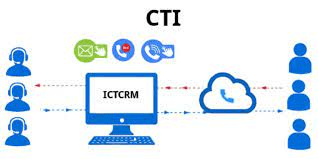Introduction:
In the present-day fiercely competitive business environment, it has become imperative for companies to offer individualized customer experiences in order to differentiate themselves. This is precisely where the significance of Dynamic CRM (Customer Relationship Management) systems comes into play, as they empower businesses to customize their customer interactions and establish enduring connections. By integrating data, technology, and processes, Dynamic CRM offers a holistic solution that enables companies to enhance their customer interactions, boost sales, and elevate overall customer contentment.
Understanding Dynamic CRM:
Dynamic CRM embodies a technology-driven strategy for effectively managing customer relationships. By harnessing data obtained from diverse touchpoints including sales, marketing, and customer service, it enables the development of a comprehensive customer overview. This holistic perspective empowers businesses to comprehend their customers’ preferences, requirements, and behaviors, facilitating personalized interactions throughout the entire customer journey.
Acting as a centralized repository for customer data, Dynamic CRM systems securely store crucial information like contact details, purchase history, communication preferences, and multi-channel interactions. By unifying this data, businesses gain valuable insights into individual customers, their preferences, and their overall journey with the company.

Personalization in the Digital Age:
The digital age has transformed customer expectations. Today’s customers demand personalized experiences that cater to their unique preferences and interests. They expect businesses to understand their needs, anticipate their desires, and provide tailored recommendations and solutions.
Dynamic CRM provides businesses with the tools and capabilities to gather, analyze, and leverage customer data effectively. By understanding individual customer preferences, businesses can deliver targeted marketing campaigns, personalized product recommendations, and tailored customer support, resulting in increased customer loyalty and satisfaction.
Harnessing Data for Personalization:
The centralized and analytical capabilities of Dynamic CRM are instrumental in handling extensive volumes of customer data. Through the integration of data derived from diverse sources like website interactions, social media, and purchase history, businesses can acquire invaluable insights into customer behavior and preferences. These insights serve as a foundation for customer segmentation, personalized marketing communication, and the creation of tailored product offerings.
Employing advanced analytics and reporting functionalities, Dynamic CRM empowers businesses to unveil patterns, trends, and connections within their customer data. Through careful analysis, businesses can identify distinct customer segments, anticipate future behaviors, and formulate targeted strategies to address the specific needs of individual customers.
Streamlining Sales and Marketing Efforts:
Dynamic CRM systems offer robust sales and marketing automation features that streamline processes and increase efficiency. By automating repetitive tasks, such as lead qualification, contact management, and campaign execution, businesses can focus on building meaningful relationships with customers.
Dynamic CRM also enables sales teams to track and manage customer interactions, ensuring timely follow-ups and personalized sales approaches. With access to customer data, sales representatives can understand customer preferences and pain points, allowing them to tailor their sales pitches and offer relevant solutions. This personalized approach enhances the customer experience and increases the chances of closing deals.
Moreover, marketing teams can leverage Dynamic CRM to create targeted campaigns based on customer segments, preferences, and past behaviors. By delivering personalized messages through various channels, such as email, social media, and SMS, businesses can capture the attention of their customers and drive higher engagement.
Enhancing Customer Service and Support:
Delivering exceptional customer service is crucial for maintaining customer satisfaction and loyalty. Dynamic CRM systems provide businesses with tools to manage customer inquiries, track support tickets, and provide personalized support experiences.
By integrating customer service data into the CRM system, businesses can access the complete history of customer interactions. This allows customer service representatives to understand the context of each customer inquiry and provide efficient and personalized support. For instance, they can quickly identify if a customer has recently made a purchase, encountered any issues, or expressed specific preferences. Armed with this information, representatives can address customer issues more effectively, resulting in faster resolutions and happier customers.
Dynamic CRM also facilitates the implementation of self-service options, such as online knowledge bases, chatbots, and community forums. These resources empower customers to find answers to their questions independently, further enhancing the overall customer experience.

Leveraging AI and Machine Learning:
Artificial Intelligence (AI) and Machine Learning (ML) technologies play a significant role in enhancing the capabilities of Dynamic CRM systems. These technologies enable businesses to automate tasks, predict customer behavior, and provide personalized recommendations.
AI-powered chatbots, for instance, can deliver instant responses and personalized assistance to customer inquiries. By analyzing the customer’s query and leveraging historical data, chatbots can provide relevant information and solutions, reducing the need for human intervention and improving response times.
Furthermore, ML algorithms can analyze customer data to predict future behavior, identify upsell and cross-sell opportunities, and recommend personalized offers. By understanding each customer’s preferences, ML algorithms can generate targeted product recommendations, enhancing the customer’s shopping experience and driving sales.
Implementing Dynamic CRM Successfully:
Implementing a Dynamic CRM system requires careful planning and execution. It involves defining business objectives, selecting the right technology platform, integrating with existing systems, and training employees. A successful implementation requires collaboration between different departments, alignment with business processes, and ongoing monitoring and optimization.
It is crucial to define clear goals for implementing Dynamic CRM. These goals could include improving customer satisfaction, increasing sales revenue, reducing customer churn, or enhancing marketing campaign effectiveness. By aligning the CRM implementation with these goals, businesses can focus their efforts and measure the success of their initiatives accurately.
Integration with existing systems, such as ERP (Enterprise Resource Planning) or marketing automation tools, is essential for maximizing the value of a Dynamic CRM system. Seamless data flow between different systems ensures the availability of accurate and up-to-date customer information.
Employee training is another critical aspect of successful CRM implementation. Training programs should educate employees on how to use the CRM system effectively, interpret customer data, and leverage the available features to enhance the customer experience. By empowering employees with the necessary skills, businesses can ensure a smooth adoption of the CRM system and drive its maximum potential.
Real-World Success Stories:
Throughout various industries, businesses have successfully leveraged Dynamic CRM to deliver personalized customer experiences and achieve significant results. Case studies and success stories provide valuable insights into how companies have utilized Dynamic CRM to drive revenue growth, improve customer retention, and gain a competitive edge.
For example, an e-commerce company implemented a Dynamic CRM system and utilized customer data to create personalized email marketing campaigns. By segmenting their customers based on purchase history, preferences, and browsing behavior, they achieved a 20% increase in email engagement and a 15% boost in overall sales.
In another case, a telecom company implemented Dynamic CRM to streamline their customer service operations. By integrating customer data and support ticketing into a centralized system, they reduced average response times by 30% and improved customer satisfaction scores by 25%.
These success stories highlight the immense potential of Dynamic CRM in transforming customer experiences and driving business growth.
Conclusion:
Dynamic CRM is a powerful tool that empowers businesses to deliver personalized customer experiences in the digital age. By harnessing data, streamlining processes, and leveraging AI technologies, companies can cultivate stronger customer relationships, drive sales, and improve overall business performance. As customer expectations continue to evolve, investing in Dynamic CRM becomes increasingly crucial for businesses seeking sustainable growth and success.
By implementing a comprehensive Dynamic CRM strategy, businesses can gain a competitive advantage, increase customer loyalty, and unlock new opportunities for growth. With its ability to centralize customer data, streamline sales and marketing efforts, enhance customer service, and leverage AI technologies, Dynamic CRM is a valuable asset for businesses aiming to deliver personalized customer experiences and thrive in today’s fast-paced business landscape.
Leveraging Open Source in ICT
